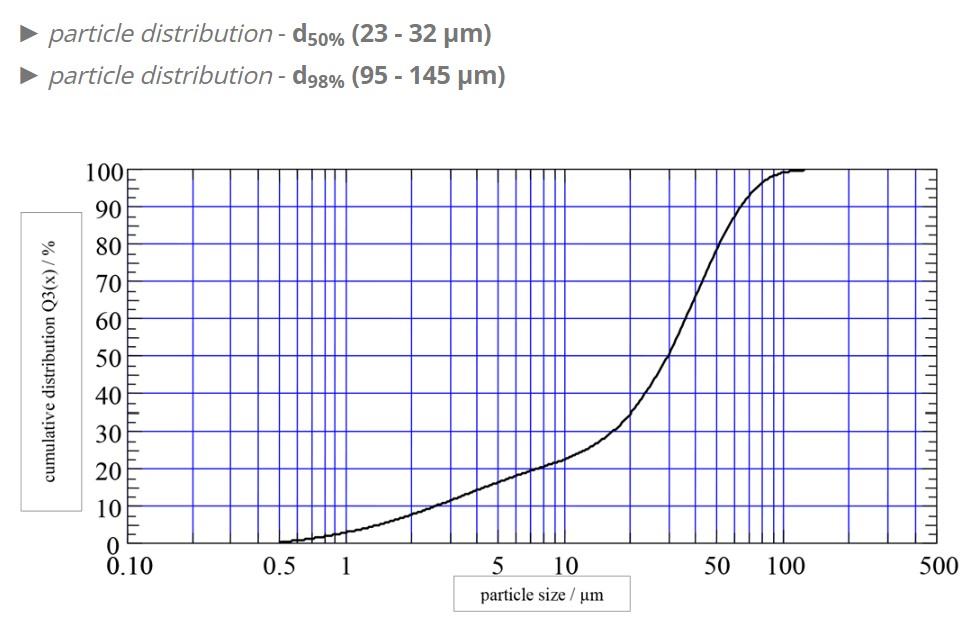Poljoprivreda, ribarstvo i šumarstvo
Kalcijum, bitan elemenat u ishrani gajenih biljaka, u zemljištu ce nalazi u nezamenjivom obliku u raznim mineralima kao što su kalcijum karbonat, kalcit, dolomit, kalcijum fosfati, apatiti, silikati. Ovi oblici kalcijuma su nepristupačni tek nakon razlaganja i rastvaranja mogu mogu biti usvojeni od strane biljaka. Zbog načina iskorišćavanja zemljišta i neunošenja kalcijuma putem đubriva u dovoljnim količinama, često dolazi do njegovog potpunog gubitka iz oraničnog sloja, što ima za posledicu povećanje kiselosti (smanjenje pH vrednosti) zemljišta, a time i razaranje složenog zemljišnog kompleksa, ispiranje ostalih hraniva, narušavanje strukture zemljišta i naravno njegov nedostatak kao biogenog elementa za gajene biljke. Kalcijum se iz zemljišta odnosi prinosom gajenih biljaka, a samim prelaskom u pristupačan oblik praktično je nezaštićen od ispiranja i većina naših zemlji šta, do skoro bogatih kalcijumom, ostaju bez njega u oraničnom sloju. Jedina mera popravke odnosno neutralizacije ovakvih zemljišta je izvođenje kalcifikacije.
DUCAZEL obezbeđuje stabilno i konstantno snabdevanje biljaka hranljivim materijama u dužem vremenskom periodu. Zeolit sprečava ispiranje hranljivih materija iz zone korena i njihovo oticanje u dublje slojeve zemljišta preko podzemnih i nadzemnih voda. Fizičko-mehaničke osobine zeolita: • povećava sposobnost upijanja i zadržavanja vode u zemljištu • povećava sposobnost zadržavanja hranljivih elemenata u zemljištu • reguliše kiselost zemljišta, Ph- vrednost • poboljšava ishranu biljaka, razvija korenov sistem, intenzivira rast i plodnost • smanjuje bolesti biljaka • sadrži neophodne elemente za razvoj: magnezijum, kalijum i kalcijum • na zemljište utiče kao meliorant • je efikasno sredstvo kod asanacije zemljišta Pozitivni efekti efikasne i široke primene ZEOLITA u poljoprivredi se odnose na sposobnost da veoma dobro adsorbuje vlagu i hraniva i na taj način utiče na povećanje prinosa i kvaliteta roda, reguliše vlažnost zemljišta kako u sušnim periodima tako i kod prekomernog prisustva vode. Unosom zeolita u zemljište dobijamo dobrog lovca i čuvara vlage kao i skladište makro i mikro hranljivih elemenata potrebnih za razvoj biljaka. Zeolit ima dobar učinak na koren biljaka kod niskih temperatura tačka smrzavanja je -20 ℃.
Proizvodi :
Ducalcit 30
Ducalcit 30 je fin prah dobijen mlevenjem prirodnog kalcijum karbonata dobro poznatog po svojoj visokoj hemijskoj čistoći.
 Tehnički list - Ducalcit 30
Tehnički list - Ducalcit 30
Ducazel - mleveni zeolit
Zahvaljujući izuzetnom prirodnom kvalitetu, poreklu i procesu proizvodnje zeolita, Ducazel ima proširen spektar adsorpcionih karakteristika. Ovo ga čini efikasnim adsorbentom mikotoksina različitih fizičkohemijskih osobina (od slabo polarnih do jako polarnih, od hidrofilnih do hidrofobnih). U isto vreme veoma je selektivan, tako da ne adsorbuje nutriente (vitamine, oligoelemente i aminokiseline).
Tehnički list - Ducazel - mleveni zeolit